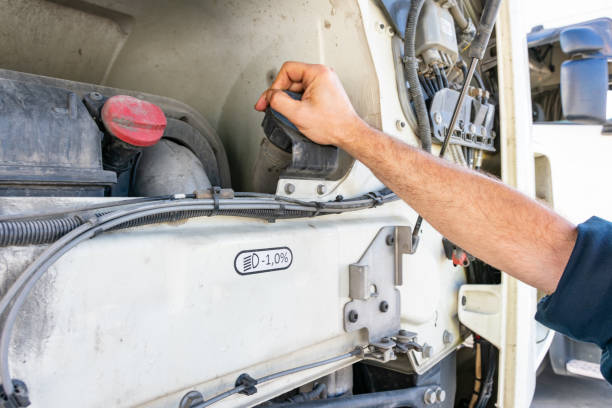Propane is a vital component of recreational vehicles (RVs) as it is used for cooking, heating, and running appliances. Propane, albeit convenient, carries some serious concerns if it needs to be properly inspected and maintained. Several risks are associated with neglecting RV propane inspection, ranging from simple annoyances to potentially fatal incidents. In this post, we’ll examine the significance of routine propane inspections for recreational vehicles and discuss the possible consequences of skipping this crucial maintenance procedure.
Recognizing Propane Systems in RVs
It’s important to comprehend how RV propane systems operate before exploring the dangers of skipping propane inspections. In RVs, propane is frequently used for cooking, water heating, refrigeration, and nighttime warming. A tank, regulator, pipes, and equipment like heaters, ovens, and stoves make up a standard propane system.
The propane fuel is kept in the propane tank, often found outside the RV. The regulator regulates propane flow from the tank to the appliances, guaranteeing a consistent and secure gas supply. Propane flows through pipes from the regulator to the many appliances in the RV.
The Dangers of Skipping Propane Inspections
Gas Leaks: One of the biggest dangers connected to propane systems that are disregarded is gas leakage. Leaks can occur due to corrosion or cracks in fittings, valves, and pipelines over time. Since propane is extremely volatile and may catch fire with only a spark, even a tiny leak could be dangerous. Gas leaks endanger inhabitants’ lives by wasting fuel and raising the possibility of fire or explosion.
Carbon Monoxide Poisoning: Carbon monoxide (CO), an odourless, colourless gas that is poisonous to both people and animals, can be produced by poorly maintained propane appliances. Carbon monoxide poisoning can result from appliances that aren’t working properly or from CO building up inside an RV. CO poisoning can cause headaches, nausea, dizziness, and, in extreme situations, even death. Frequent inspections reduce the chance of CO exposure by ensuring that gas appliances are operating safely and correctly.
Appliance malfunctions: Burner problems, ignition problems, and malfunctioning safety features are more common in propane stoves that have been neglected. In the worst-case situation, these issues may lead to dangerous equipment failures, ineffective functioning, or uneven heating. Frequent inspections make it possible to identify possible problems early on, averting expensive repairs or future collisions.
Failures of the regulator: The regulator is essential to keeping the system’s propane pressure safe. Regulators, however, may deteriorate with time due to environmental exposure, normal wear and tear, or manufacturing flaws. A broken regulator can lead to uneven gas flow, damaging appliances, or even creating over-pressurization, resulting in leaks. Regular inspections assist in detecting problems with regulators before they become major safety hazards.
Risks of Explosion and Fire: The potential of fire or explosion from neglected propane systems is the worst outcome. Several things, such as gas leaks, broken appliances, and ignition sources, might combine to cause disastrous events that put people in danger and destroy the RV. RV owners can reduce these hazards and make sure that both they and other passengers are in a safe setting by making routine propane checks a priority.
Safe Propane Use: Advice for RV Owners
Plan Regular Inspections: As soon as you see any indications of concern, or at least once a year, make it a priority to arrange professional propane inspections. The complete propane system, including the tanks, regulators, pipes, and appliances, can be carefully inspected by a trained specialist to look for problems and ensure everything is in working order.
Be Alert: RV owners should be on the lookout for any indications of propane-related issues in addition to having their vehicles inspected by professionals. The smell of propane, similar to rotten eggs, hissing noises around gas appliances, pilot lights that frequently go out, or obvious damage to propane components are some examples of these symptoms. If you observe any of these exemplary indicators, you should immediately stop the propane supply, open the RV, and get professional help.
Invest in Carbon Monoxide Detectors: Install detectors in your recreational vehicle to warn you of CO gas accumulation. Install detectors next to gas appliances and in sleeping quarters, and ensure they are always tested to ensure they are working properly. Carbon monoxide detectors can alert you to possible dangers in advance, giving you crucial time to take care of any problems before they worsen.
Observe appropriate usage guidelines: When using propane appliances in your RV, always abide by the safety precautions and manufacturer’s directions. This entails handling and storing propane tanks correctly, avoiding using equipment that runs on propane while the RV is moving, and making sure there is enough ventilation for using propane for heating or cooking.
Be Ready for Emergencies: Accidents can still happen even with safety measures in place. To efficiently address unforeseen circumstances, provide your recreational vehicle with fire extinguishers, a first aid pack, and a propane gas detector. In addition, make sure everyone there understands how to handle propane-related situations and has an evacuation plan.
In summary
The risk of skipping an RV propane inspection is too great. The repercussions of ignoring propane safety can be dire, ranging from fire dangers and appliance failures to gas leaks and carbon monoxide poisoning. Regular inspections should be prioritized, warning signs should be watched out for, and proper usage standards should be followed. These actions will help RV owners reduce the hazards associated with propane systems and guarantee a safe and pleasurable road trip. Recall that prevention is essential for propane safety.
